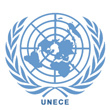August 2010: The UN Economic Commission for Europe (UNECE) has released the second Environmental Performance Review of Uzbekistan, which takes stock of the progress made in the area of environmental management since the country was first reviewed in 2001.
The Review contains a sub-section on climate change as a challenge for sustainable agriculture, as well […]
 August 2010: The UN Economic Commission for Europe (UNECE) has released the second Environmental Performance Review of Uzbekistan, which takes stock of the progress made in the area of environmental management since the country was first reviewed in 2001.
August 2010: The UN Economic Commission for Europe (UNECE) has released the second Environmental Performance Review of Uzbekistan, which takes stock of the progress made in the area of environmental management since the country was first reviewed in 2001.
The Review contains a sub-section on climate change as a challenge for sustainable agriculture, as well as a chapter on climate change and the environment. The report covers policymaking, planning and implementation, the financing of environmental policies and projects, and the integration of environmental concerns into economic sectors, in particular water management, land management, energy and climate change.
According to the report, Uzbekistan is the only Central Asian country with six projects registered by the Clean Development Mechanism (CDM) Executive Board. The report underscores the likelihood that Uzbekistan’s greenhouse gas (GHG) emissions will increase as a result of the country’s energy policy, which favors the conversion from gas to coal in electricity production. The report notes that while the country is implementing a major change in its energy policy, reverting back to the use of brown coal in energy generation, significant steps have been taken in order to adjust energy policy to the new realities imposed by climate change, including tariff-based and non-tariff-based measures.
The report further states that the melting glaciers and snow reserves, the drying up of the Aral Sea, indications of high water losses through evaporation, and outdated irrigation practices and infrastructure underline the close links between climate change, water security and development in Central Asia, especially in Uzbekistan. It concludes with the recommendation to accelerate the adoption and implementation of measures to reduce the wasteful use of water and energy and to encourage more sustainable forms of agricultural development to ensure the country’s sustainable development and stability. [The Report]